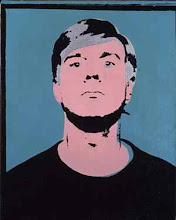 |
| Sophie Ristelhueber, Fait, 1992 |
Tate Modern's exhibition of conflict photography takes an original approach to its organisation: pictures are ordered according to how long after the events they record they were made - seconds, weeks, months decades. It is also interesting to see the art museum enbracing straight documentary images and photojournalism alongside more self-consciously 'art' photography. Although, as Laura Cumming points out in her review, apart from Don McCullin, photojournalism is underepresented and thereby the curators miss the opportunity to tell a more vivid and human story. (Cumming is also summarily dismissive of Sophie Ristelhueber's 'banal' prints - which I think look rather interesting.) There are, nevertheless, many fascinating images, including, for example, Shomei Tomatsu's photographs of relics from the effects of the atomic bomb exploded over Nagasaki in 1945, Simon Norfolk's studies of battle scarred buildings in Afghanistan and Luc Delahaye's eerie landscapes clouded by explosions.
Read reviews and articles by Waldemar Janusczcak, Laura Cumming, Alastair Sooke, Sean O'Hagan, Karen Wright and Francis Hodgson. (See also Shomei Tomatsu's obituary, below.)
Click on images to enlarge.
 |
|
Richard Peter, Dresden
After Allied Raids Germany, 1945
|
 |
| Shomei Tomatsu, Time stopped at 11.02, 1945, Nagasaki, 1961 |
 |
|
Don McCullin, Shell
Shocked US Marine, The Battle of Hue, 1968
|
 |
| An-My Lê, Untitled, Hanoi, 1994-98 |
 |
|
Jane Wilson, Louise
Wilson, Urville, 2006
|
 |
|
Jim Goldberg, Prized
Possession from the series Democratic Republic of Congo, 2008
|
 |
|
Luc Delahaye, US
Bombing on Taliban Positions, 2001
|
 |
|
Luc Delahaye, Patio
civil, cementero San Rafael, Malaga, 2009
|
 |
|
Simon Norfolk, Bullet-scarred
apartment building and shops in the Karte Char district of Kabul, 2003
|


No comments:
Post a Comment